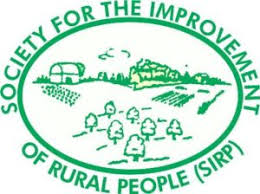|
Getting your Trinity Audio player ready...
|
As set out in the convention for the elimination of all forms of discrimination against women (CEDAW), the Beijing platform for action and the 2030 agenda for sustainable development, as well as in our national laws and policies, achieving gender equality and women’s empowerment are essential for economic, social and environmentally sustainable development thus enabling women and girls to reach their full potential.
In Nigeria, there is the national gender policy strategic framework (implementation plan) Federal Republic of Nigeria (2008-2013) and the national strategy to end child marriage 2016-2021.
Among the key issues highlighted in the two documents mentioned above are “strengthen accountability system” and “increase financing”.
One indicator for action in these areas is budgeting across the public sector, whether by legislation, regulation and other means.
Building on the principles of good governance related to transparency, efficiency and accountability, gender-responsive budgeting (GRB) serves as a strategy to promote the goal of gender equality and gender mainstreaming by paying attention to revenue raising and spending of government finances. Specifically, it entails; i. an analysis of the gender-differentiated impacts of the budget.
- A process of adjusting budgetary decision-making and priorities, in accordance with the differential needs of women and men.
Following the registration of participants, the executive director of society for the improvement of rural people (SIRP-NIGERIA) delivery a welcome address in which he discussed the meaning and expectations of the training workshop on Gender Response Budgeting.
Accordingly we, the twenty-five participants from various MDAs that took part in the Training workshop on GRB hereby resolve as follows:
We recognize that Enugu State Government is already implementing many innovative governance reforms, for instance the Enugu State Visit Every Community (VEC) programme which is a needs assessment programme for giving voice to beneficiaries of development programmes at community levels.
However, there is the need to legitimize such framework by Acts of the House o Assembly in order to ensure sustainability.
Enugu State in collaboration with communities and CSOs should evolve effective and institutionalized monitoring and evaluation frameworks / strategies for monitoring and / or evaluating the utilization of government resources.
Sub-national budgets should be made participatory, people – centred and gender-responsive (women, children youth and the vulnerable).
Enugu State should adopt best practices in promoting transparency and accountability in governance. Citizens and non-citizens need to demand that the budget and other fiscal documents be made open and posted at the public domain.
Public Funds, especially at Enugu State (Sub-national) level be spent effectively, through improving the flow and effective use of budgeted resources for system strengthening and service delivery in health, education, and child protection and social welfare; among others.
Enugu State will institutionalize GRB as a framework for preparing annual budgets for Enugu State and to also institutionalize specific child marriage intervention across sectors within Enugu State Government budgets.




